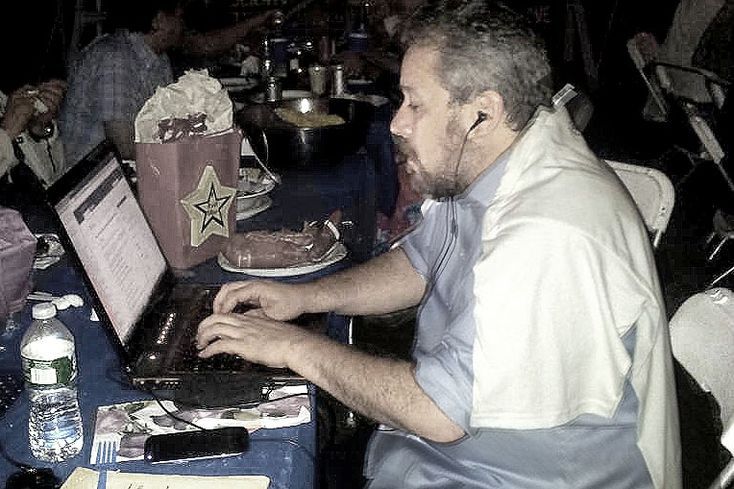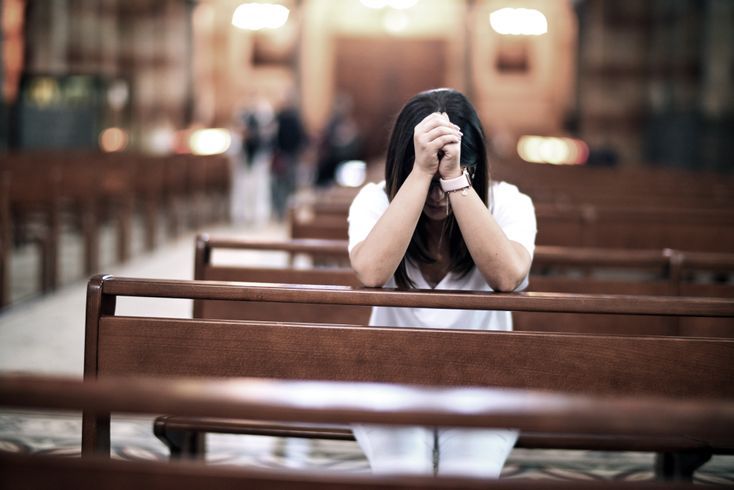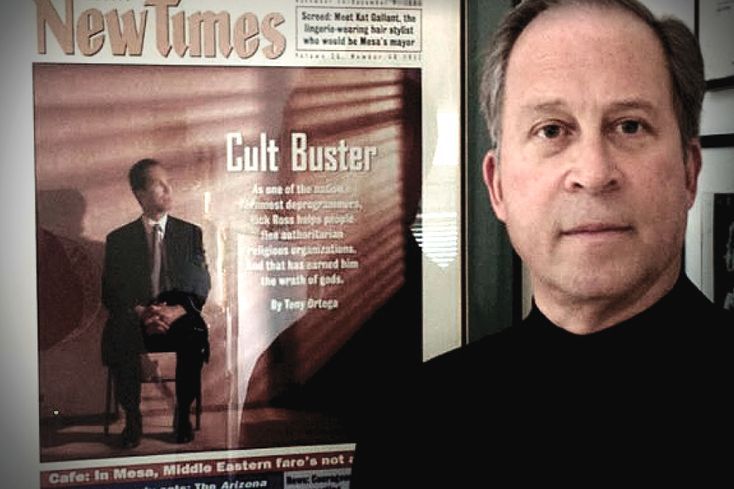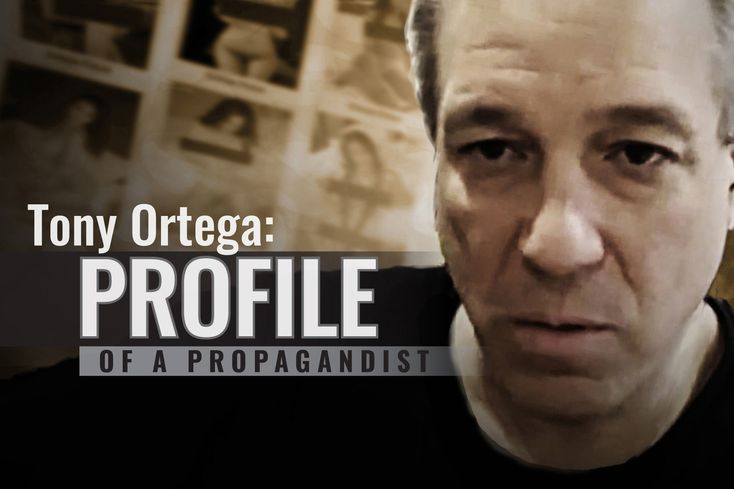Exploiting Tragedy, Peddling Profanity
As the pandemic death toll mounted, Tony Ortega answered human suffering by scorning the beliefs of those who sought solace in religion. It was nothing new for him.

In early 2020, millions struggled with a global pandemic that began in an instant and grew exponentially.
Each day saw once unthinkable numbers become a ghastly reality as sickness landed in living rooms and classrooms, in offices and restaurants, in metros and pews and wards. Each day led to the upheaval of normal life, to paralyzing isolation and to tragic losses of family and friends.
During this dark time, many sought solace in religion.
Not Tony Ortega. He mocked it.
In March and April, when the virus established a stronghold in the U.S.—with an early epicenter in Ortega’s backyard of New York City—he treated the outbreak as another opportunity to show his disdain for people.
The first confirmed case of the virus in New York City was reported on March 3. By March 25, more than 17,800 cases had been confirmed in the city, with 199 deaths from Covid-19.
Instead of using his limited platform to offer hope or empathy, Ortega launched a blog series the next day, March 26, where he flexed his smug condescension to a new level of contempt.
“Is the pandemic right out of the Bible?” he wrote. “If the world really is ending, we thought it was time to prepare properly for Armageddon. By, you know, reading the damn thing.
“The Bible, that is.”
Ortega thus began his 13-part, daily takedown of the Bible, which he planned to critique as he read it. Quoting passages from Genesis, he proceeded to skewer the scripture and ridicule people who believe in its teachings.
And as the pandemic worsened, so did Ortega’s verbiage.
On March 27, 2020, confirmed cases in New York City were up 30 percent and fatalities climbed to 365. Within two more days, the number of deaths had tripled.

That didn’t stop Ortega with his day-by-day biblical takedown. “This book has become awfully silly in a very short amount of time, hasn’t it?” he concluded in his April 2 piece.
By April 4, more than 500 lives were lost each day in New York City. State officials announced 1,000 ventilators were being sent in, as near-capacity hospitals struggled to save lives and the toll continued to rise. The U.S. Naval Ship Comfort, docked in the harbor, prepared to help relieve the city’s overburdened health infrastructure. The state was relying on 85,000 healthcare volunteers to aid in the fight against the virus.
Members of the faith community citywide worked tirelessly to provide emergency food assistance to distressed neighborhoods, help parishioners with funeral and burial costs, and serve in any other way they could to succor devastated families.
Ortega carried on unfazed, determined to complete his dissection of Old Testament passages to deride the devout: “Are you buying this?” he scoffed, following the next day with his ridicule of “the Big Guy....What a chotch this guy is!”
By April 6, there were 72,181 confirmed cases in NYC, with 2,475 deaths, 25 percent of all Covid-19 deaths in the country. Bodies of those who died at home were picked up by the U.S. Army, National Guard and Air National Guard.
Entirely divorced from the misery and tragic loss of life, that same day Ortega slithered into his finale, capping his series with his declaration that God is “this conniving, underhanded and petty biatch who is running things….The Big Guy is such a small-minded wanker.”
Ortega’s series ended on April 7—the day the death toll in New York State topped 5,000. One week later, the virus count tolled 10,000 deaths in New York City alone.
Ortega never second-guessed his decision to publish his takedown and mock the devout. Not that Ortega’s followers expect anything less—he is a professed atheist and has been mocking religion since the time he found voice in print.
By the mid-2000s, as a regular with the alternative weekly newspapers printed under the New Times umbrella, he had attained notoriety as a one-trick critic: maligning the religious beliefs of others and pontificating on what he deemed the fallacies of all religions.
One piece by Ortega in Phoenix New Times, under the guise of “satire,” featured a “Terrorists’ Guide to Arizona” stereotyping Muslims as terrorists intent on putting “the fear of Allah into the infidels.” The guide illustrated scenarios of terror attacks, suggesting locations and weapons of choice—such as the Vatican Observatory “operated by the pope.” Ortega warned “pointy-headed Jesuits” targeted with a “suitcase bomb” that they would “find scientific evidence of God sooner than you think!”
“Religious people actually hate each other’s guts,” Ortega proclaimed in one article in The Pitch, the New Times affiliate in Kansas City. “Too many of them figure they have all the mysteries of the universe solved, and anyone who disagrees is going straight to hell. In the meantime, they figure that salvation is a matter of attracting as many tithe-making suckers into their big tent before the end times.”
Ortega’s rationale for lashing out at religions is not just about belief, or about the enjoyment he gets from ridiculing others. It’s about him.

“We’re all disappointed that our lives are as ordinary as they are,” he said on a podcast in June 2020. “We imagine ourselves being the central figure in this vast narrative that we watch on television or that we read in books. And it disappoints us that we’re not starring in that kind of a drama.”
For Tony Ortega, it is about being the “Big Guy” in his own big tent. And attracting as many donation-paying “suckers” as he can from among his antireligionist followers and those he daily instills with his bigoted views. He is otherwise kept financially afloat by his wife, Arielle Silverstein, who bills herself a “Jewish atheist” and has a fanatical history of her own in the name of that atheism.
Ortega has himself been affiliated for decades with the atheistic Skeptics, an organization that, like Ortega, scorns spirituality and religion and thinks all blessings, miracles and even daily beliefs stem from ignorance.
Ortega used the Skeptics to sponsor a book promotion tour in 2015. At the stop in Los Angeles, a local Skeptics associate introduced Ortega with the proud announcement: “We’ve hit Jews, the Christians, Muslims, Mormons, Satanists, Buddhists—we hit everybody.”
In subsequently promoting a rally for his fellow atheists, skeptics and secularists, Ortega invited people to join him and “raise a little hell chasing away the demons of magical thinking.”
But it is the Bible that particularly haunts Ortega. “Clearly, we’re in fable territory here,” he wrote in his series in April 2020, “and taking it seriously is obviously a trap.”
Those who found succor in the scripture as they suffered the unimaginable loss of loved ones during the pandemic do not just differ—they see better than anyone where Tony Ortega lives.
Thomas Aquinas once said, “To one who has faith, no explanation is necessary. To one without faith, no explanation is possible.”
For Tony Ortega in his underground bunker, no explanation is possible and no explanation is necessary.


